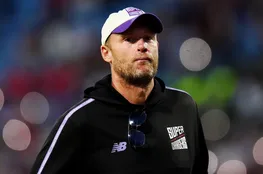The aftermath of the recent passing of the NCAA v. House Settlement marks a pivotal shift in college athletics, triggering adjustments for programs nationwide, including Missouri under the leadership of athletics director Laird Veatch. Missouri’s approach to this evolving landscape is centered on leveraging the new framework not just for adaptation, but as a catalyst for sustained competitive success. Over the past five years, the university has strategically utilized the Name, Image, and Likeness (NIL) space to revitalize its football, men’s basketball, volleyball, and other athletic programs – a testament to a proactive and well-executed strategy. As Laird Veatch articulated in a letter to fans published Sunday, "At Mizzou, we see this moment as an opportunity."
This signifies a critical juncture to reaffirm the university’s dedication to investing in the core elements driving competitive achievement while embracing the necessary innovations to maintain a position of prominence at the highest collegiate level. With the settlement’s passage, schools are now empowered to directly compensate players for their performance through revenue sharing models, a significant departure from previous restrictions. The Missouri athletics administration has been proactively preparing for these changes for a considerable period, anticipating and strategizing for the new era. Veatch emphasized, "Our Mizzou Athletics staff has spent the past year preparing for this outcome." Recognizing the operational shifts inherent in this transition, the administration is approaching the new landscape with a resolute sense of purpose and optimism. Missouri has committed to the full $20.5 million revenue cap that programs will be permitted to share with their athletes, a clear indication of their dedication to supporting their student-athletes. A key challenge facing the administration is determining the optimal distribution of this revenue across various sports, with a substantial portion anticipated to be allocated to football and men’s basketball, the program’s highest-revenue generating sports.
In anticipation of this newfound ability to share revenue, Missouri has implemented a strategic increase in football ticket prices by at least 50% across nearly all sections for the 2025 season, demonstrating a forward-thinking approach to capitalizing on the changes. Furthermore, revenue from football ticket sales is projected to increase starting in the 2026 season, coinciding with the ongoing Memorial Stadium Centennial Project, which includes the addition of 51 new suites and a capacity expansion of nearly 3,000 seats – representing a substantial investment in the stadium’s future. The university’s ambition is that this strategic investment will ultimately generate increased revenue, enabling further investment across all of its athletic programs. Veatch stated, "This new model allows us to provide even greater opportunities for our student-athletes to benefit financially." To further support student-athletes, Missouri is committed to providing more than 60 new scholarships, totaling approximately $3 million for the upcoming year. This commitment underscores the university’s dedication to holistic student-athlete development.
Importantly, student-athletes will continue to be permitted to earn profits from NIL deals outside of the university, but agreements exceeding $600 will now be subject to reporting and review by a centralized clearinghouse system, NIL Go. This system aims to ensure transparency and compliance within the evolving NIL landscape. The passage of the settlement represents a transformative moment for college athletics, and Missouri, under Veatch’s leadership, is poised to navigate this new era with strategic foresight and a commitment to maximizing opportunities for its student-athletes.
























